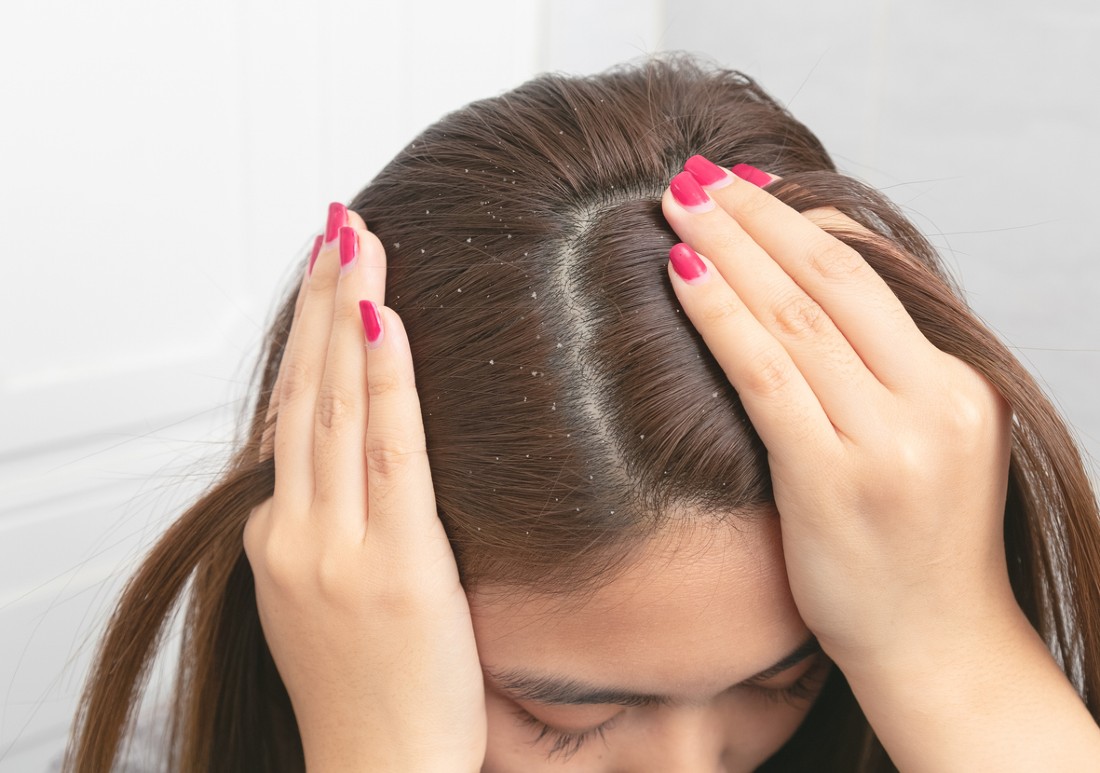Causes of Dandruff and How You Can Combat It

Let’s face it — dandruff can be pretty aggravating, bothersome and even humiliating. It is one of the most common conditions that cause the scalp to become inflamed and itchy. As a consequence, your black clothing is often powdered with white flakes. While it is not a life-threatening illness, having dandruff flakes on your shoulders is somewhat unsightly. Plus, though dandruff tends to come and go with the seasons, it worsens in extremely dry or scorching weather.
Leading Causes of Dandruff and Treatment Options
Skin Type
One of the most prevalent causes of dandruff is dry skin. And, regrettably, if this is the cause of your dandruff, it may worsen during the cold and dry weather. Many presume that dry skin type is the sole contributor to dandruff. Though dry scalp is one of the major culprits, we cannot blame it entirely because many people with oily skin also suffer from dandruff.
An increase in sebum production — a natural oil present in your scalp — often leads to an oily scalp. This can also culminate in dandruff-causing disorders such as seborrheic dermatitis, often known as scalp eczema
Remedy: You know how it works. There are tons of anti-dandruff shampoos, including both medicated and non-medicated, that help to moisturize your scalp and ameliorate — or perhaps wholly eliminate — dandruff.
If you have seborrheic dermatitis, you might want to visit a dermatologist for treatment options. A specialist may advise you to begin with over-the-counter remedies such as anti-dandruff shampoos or nonprescription medications. They can also prescribe anti-inflammatory topical ointments and suspensions. But, for extreme cases where none of these treatments works, doctors may suggest you take antifungal drugs in tablet form.
Shampooing
Many folks think that the more frequently you shampoo, the worse dandruff gets. Well, this is not true, my lord! In actuality, not shampooing sufficiently tends to aggravate dandruff. When you don’t shampoo enough, oil and dead skin start to accumulate on your scalp, exacerbating dandruff.
Remedy: A medicated shampoo can be beneficial. Shampoos incorporating ketoconazole, selenium sulfide or zinc are the most effective ones for treating dandruff. People with hair on the brittle side can also use an anti-dandruff conditioner.
Fungus – Malassezia
A fungus called Malassezia is the main cause of dandruff. This fungus resides in nearly all adult scalps; it thrives on your scalp’s oils, tearing them down and leaving oleic acid in their stead. Since a significant number of people are allergic to oleic, their body acid subsequently reacts to it by accelerating the skin cell regeneration. It is likely an attempt to reduce the scalp inflammation that results in flakes. These flaky dead skin cells are often seen on your scalp or shoulders.
Remedy: An anti-dandruff shampoo and conditioner might be helpful in treating dandruff. Regular shampoos don’t have the necessary anti-fungal properties to deal with this kind of dandruff or to remove all of the dandruff-causing debris. Medicinal shampoos include the essential elements to combat that.
Hair Care Products
Similar to many other regions of the body, the scalp is prone to inflammation and allergic responses. People with sensitive scalps tend to develop contact dermatitis. It is a type of skin reaction caused by intimate contact with an irritant or allergen, and it nearly always ends in dandruff. If you feel your scalp is becoming greasy, itchy or flaky after using a specific hair product, it most likely is due to that product.
Remedy: Observe which product is most likely causing your scalp to react, and discontinue its use immediately. If you use a variety of hair care products and are unsure which one is causing dandruff, you may employ the rule of elimination to help you figure it all out. You can also start using anti-dandruff shampoo for a few weeks until your scalp inflammation settles.